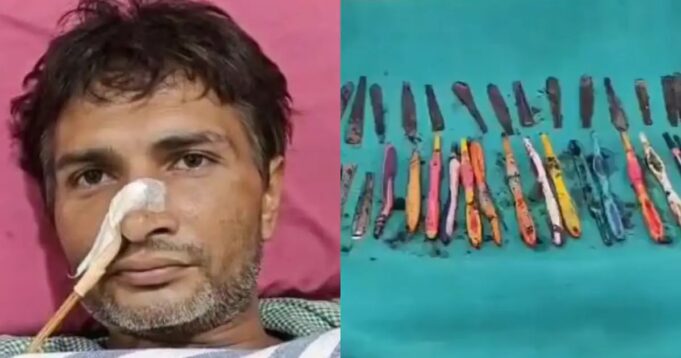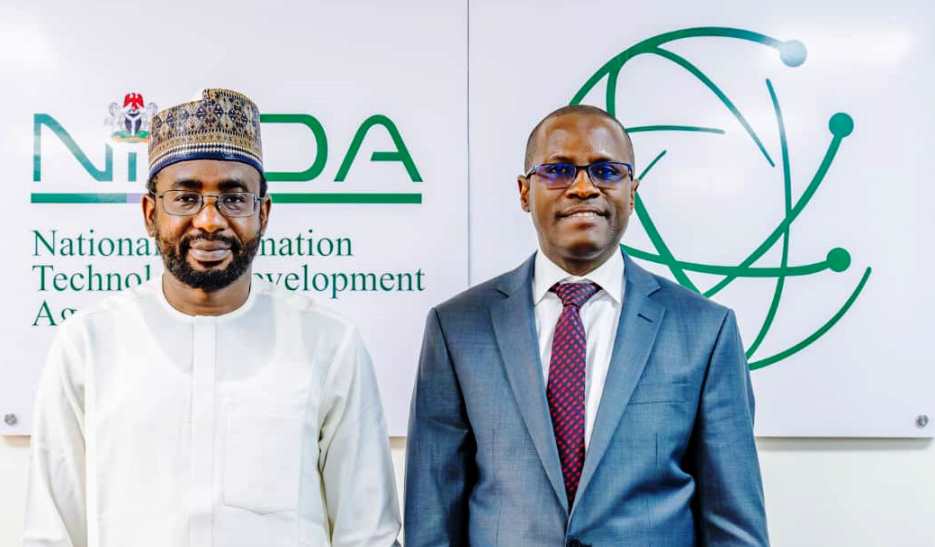In a case that has generated widespread discussion across Nigeria and West Africa, a 40-year-old man has undergone a marathon five-hour surgical operation after doctors discovered several undisclosed objects lodged in his stomach. The unusual medical emergency has sparked renewed debate about mental health, access to proper care, and the realities faced by individuals dealing with complex psychological challenges in the region.
The patient was transported in critical condition to a local hospital on September 17, reportedly presenting with intense abdominal pain, persistent vomiting, and extreme weakness. According to hospital sources, his symptoms alarmed family members and prompted immediate medical intervention.
Initial medical imaging—used to diagnose the cause of his severe discomfort—left the surgical team stunned. The case, which the lead surgeon described as “among the most extraordinary” of his professional life, involved the extraction of multiple foreign objects that had been intentionally swallowed over a period of weeks.
Further investigation by health officials indicated that the man had been admitted to a de-addiction centre approximately a month before the incident. Staff members at the facility, who wished to remain anonymous, confirmed that he was undergoing treatment for substance-related challenges—an issue that health experts say is increasingly common across West African communities struggling with addiction.
Distressed by what he perceived as abandonment by his family, it is reported that the man began ingesting various everyday items, including spoons and toothbrushes, easily accessed at the centre. This unusual coping mechanism is believed to have arisen from a sense of desperation and frustration among patients facing intense withdrawal or emotional isolation.
Medical personnel noted that many of these objects had been purposefully broken into smaller pieces prior to swallowing, raising the risk of internal lacerations, infection, and even life-threatening abdominal injuries. “Removing these sharp and irregular pieces required utmost care, and the risk of internal bleeding was significant,” explained one surgeon involved in the operation, citing the extraordinary challenges presented by the case.
Doctors now suspect the individual may be living with pica disorder—a rare psychiatric condition marked by an uncontrollable urge to consume non-food items. While rare, pica can be triggered by various factors including nutritional deficiencies, trauma, or underlying mental illness. Mental health experts have highlighted the importance of early detection, given that cases can result in severe health complications without timely intervention.
The man is currently in a stable condition and recovering under close observation at the medical facility. Plans are underway for him to undergo a comprehensive psychiatric evaluation, with the goal of uncovering the root causes of his actions and crafting a tailored support plan. “Recovery is not only about the physical aspect—we must address the mental and emotional wellbeing of our patients,” stressed a mental health specialist at the treating hospital.
Local reaction to the incident has been swift and varied. In both Nigeria and Ghana, online forums, health-focused WhatsApp groups, and talk radio have filled with debate about the state of mental health services, societal stigma, and how families can best support their loved ones facing addiction or psychological distress.
Nnenna Okoro, a Lagos-based community health advocate, commented: “We must remove the shame around both psychiatric conditions and substance abuse. If we want people to seek help early, communities need to show understanding, not judgment.”
Ghanaian psychiatrist Dr. Kwame Yeboah added: “This case, while rare, is a reminder that mental illness can manifest in unexpected ways. We need greater investment in training and expanding access to care facilities across West Africa.”
According to data from the World Health Organization, rates of pica and similar psychiatric disorders are underreported in Africa, due to limited awareness and inadequate documentation. Experts urge governments to prioritize data collection and public education to better respond to emerging mental health needs.
For young people and families facing similar struggles, Lagos social worker Tunde Ilori advises: “If someone you love is acting out or struggling with their mental health, reaching out early to a qualified professional can be lifesaving. Our communities must do more to support—not isolate—those suffering in silence.”
A closer look at Nigerian and West African context reveals that mental health infrastructure remains under strain. According to a 2023 report by the Nigerian Medical Association, there are fewer than 250 licensed psychiatrists serving a population of over 200 million, making cases like this a call to action for greater investment and public awareness.
Despite improvements, social stigma around addiction and psychiatric disorders remains a significant barrier. Families, often unsure of where to turn, may inadvertently contribute to the emotional distress of loved ones seeking help. Non-governmental organizations and advocacy groups stress the need for compassion and education to change attitudes and ensure that vulnerable community members can access timely, appropriate care.
Globally, instances of pica have been documented across diverse contexts, from Europe to Asia, but experts note that localized stressors—including economic hardship, displacement, or lack of community support—can exacerbate underlying psychiatric vulnerabilities.
As the patient continues his recovery journey, professionals urge the public to look past sensational headlines and recognize the importance of systemic change. “Every person deserves dignity and empathy, no matter their mental health status. Let this case inspire dialogue, not judgement—and encourage lasting improvements in our shared healthcare systems,” said Dr. Yeboah.
What are your thoughts on mental health awareness and care in Nigeria and West Africa? Have you or someone you know been affected by similar issues? Drop your comments below and follow us for continuous updates on this unfolding story.
For general support, reach out at support@nowahalazone.com.
Connect with our community on Facebook, X (Twitter), and Instagram for news that matters, debates, and more local stories!










